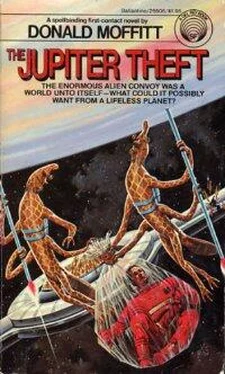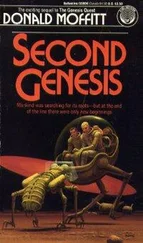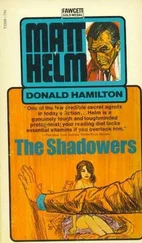An awful suspicion began to dawn on Jameson.
Triad gestured toward the triangular containers. “We found the animal on your planet,” the creature said.
Tetrachord and Triad were indulgent. They let Jameson hang around while they unpacked the containers, though they hissed at him if he got too close.
Soil samples in little transparent bags. A dead beetle. Some dessicated samples of vegetation that was indisputably terrestrial. To Jameson the stuff looked tropical. South America or Southeast Asia? And—sinister import!—a preserved human hand and forearm with the shredded remnants of a cotton sleeve sticking to it. The kitten’s owner?
They took out two more dead kittens and part of a third. The gray one had been the only one to survive the trip. Eight days, if he could believe the Cygnans.
Eight days from Earth! Was that possible?
Jameson didn’t even have to do the arithmetic. This was a favorite spaceman’s pipe dream, one that came up during every bull session.
Halfway from Earth to Jupiter at a constant acceleration of one gravity. The second half of the trip at constant one gravity deceleration. Eight or nine days was about right. If he needed confirmation, the kitten was proof enough. He looked at it sitting next to the empty bowl, contentedly giving itself a wash. Perhaps there had been water in the capsule it had traveled in—condensation or even a water supply. But it couldn’t have survived without food for much longer than that.
Brute force. Unlimited power. That’s what it would take. Never mind about vectors or the finer points of space navigation. But if those puny-looking Cygnan broomsticks could manage constant acceleration at one g, then certainly they could mail a package from Earth in eight days.
“Are there Cygnans on Earth now?” Jameson asked.
Tetrachord and Triad were preoccupied. Jameson had to ask several times before he got a reply.
“No. That is a wrong question. A Cygnan on Earth is a not-Cygnan, so that what you say has not-meaning.” While Jameson wrestled with that, Tetrachord went on: “We have caused to be sent to Earth a (number?) of t weetle-tweetle-chirp-trill. ”
“What is a tweetle-tweetle-chirp-trill? ”
Impatiently, Tetrachord glided over to the queer console at the far wall, still clutching a soil-sample bag in one middle claw. The fingers of three hands blurred over the pearly knobs and flicked over the rows of wires on their fretted necks. A picture formed on the three clustered circular screens—all the same picture, but with subtle differences. The Cygnans didn’t use holo images. Their three eyes evidently focused separately on each of the three images and their brain translated them into a picture they could use.
Jameson concentrated on whatever picture seemed clearest at the moment. What he saw was a hangarlike interior occupied by a narrow flat-sided needle in the shape of an elongated pyramid. Twenty or thirty Cygnans were bustling around it, giving it scale. The object was about ten meters long, he guessed. Three flaring nozzles stuck out of the corners of the blunt end. The pointed end was broken away, and Cygnans were removing odd-shaped containers from the interior. All the Cygnans wore transparent protective suits.
A probe. An automated probe.
How the hell had the Cygnans slipped their probes through Earth’s radar defenses without precipitating a world war?
“How long have you been studying Earth?”
The answer was indefinite, as answers involving duration or measurement always were. Jameson gathered that it hadn’t been for very long, though. Not until after the human ship had entered the Jovian system.
That was odd. They must have picked up radio signals from Earth and Mars long before they themselves went into orbit around Jupiter. And picked up the com laser flashes to the ship. It seemed to Jameson that when you had traveled more than ten thousand light-years, having a look at an indigenous intelligent life form would have a high degree of priority. But evidently the Cygnans had just now gotten around to being curious about people.
“Why are you studying us now?”
“You are too puny to interfere with our purpose. But the mother-within-herself is prudent.”
More Cygnan gobbledegook. He’d run into the “mother-within-herself” reference before and had pinned down its literal meaning, if not its import. He wished he could pass on these clues to Janet Lemieux or someone else more qualified than he. But the thrust of Tetrachord’s answer became clear when the Cygnan plucked some wires on the console and another scene took shape on the three circular screens. They showed a film or a tape or a sound-picture of the Jupiter ship after it had been evacuated. Cygnan technicians had removed the protective blisters over the nuclear-missile racks. They were taking lots of pictures, or whatever happened when light from those glittering little boxes they carried bathed the missiles, but they weren’t touching the launching racks. They acted somewhat skittish, and were staying well clear of them.
The Cygnans were miffed about the nuclear bombs, and Jameson couldn’t blame them.
“We wish you no harm,” Jameson said. “But humans also are prudent.”
“Humans cannot harm us,” Tetrachord said flatly.
His heart pounding, Jameson said, “What do you want with the Earth?”
“Want?” The two Cygnans tossed the word back and forth, like shrikes calling to each other in counterpoint. “The Earth is a wrong thing. It is not a thing that we want. We have no need to take it.”
That took Jameson’s breath away. Tetrachord hadn’t used “take” in the sense of possessing something. He had used the idiom for carrying something away.
Could he keep the Cygnans talking? They became bored easily. For the moment, they were intently watching the kitten. Its bath finished, it was clawing its way up his trouser leg. It settled in his lap, purring. There was an excited chirping from the Cygnans. Desperately Jameson ran his fingers over the keyboards of the Moog.
“Why have you come here then?” he asked. “What do you want in this star system?”
The Cygnans seemed at a loss to reply to him. They went into a hand-holding huddle, fluting at each other for a long time. Finally Tetrachord went over to the console again. An outside view sprang to life on the triple viewscreens: the tremendous disk of the planet Jupiter, repeated three times.
Jupiter had changed. Jameson stared in wonder at its seething bulk. The bands and the Red Spot were completely gone. The process the aliens had started had advanced considerably since the last time he had seen the planet. The atmosphere had churned itself into a boiling porridge, a uniform dirty yellow in color. It heaved violently, popping world-sized bubbles that burst through the surface and were sucked into the billowing chasm that divided the planet in half.
“This is what we want,” Tetrachord cheeped at him. “We will take it with us.”
Jameson sat there, too stunned to move. The kitten purred in his lap, its sharp little claws digging into him rhythmically. Over on the triple screens, Jupiter continued to boil away.
If you’re going to steal a planet, he thought insanely, why settle for anything except the biggest? Smash and run, with the brightest bauble the solar system has to offer!
Jupiter!
A mere bagatelle, massing three times the rest of all the planets and moons in the solar system combined! A giant among worlds—eleven times the diameter of Earth and more than three hundred times its weight. A melon next to a grape! He supposed it was fortunate for the human race that the Cygnans thought big.
He patted the kitten absently. Under the soft fur it was all bones. The Cygnans were still watching him with their triangulated eyes. He flipped switches and pulled stops on the Moog. He was finally getting somewhere; every nuance had to be right.
Читать дальше












